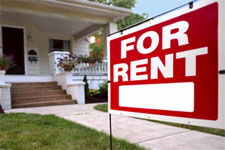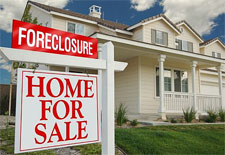Greetings!
This Community Association Update is an example of our commitment to providing the highest quality legal services to our clients and industry partners. If your company or Association would like to see a topic or issue covered in future editions, feel free to call our offices, email us, or submit a question online! | |

| Sincerely,

Steven J. Tinnelly, Esq.
steve@tinnellylaw.com
|
|
2012 Legislative & Case Law Update: Introduction
Below you will find an overview of the new legislation impacting California community associations ("Associations"). Unless stated otherwise, the legislation takes effect January 1, 2012. You will also find an overview of some important new case law, along with some links to additional resources we have published on the items discussed in this Community Association Update.
*Note: The material below is not meant to be an exhaustive list of all new legislation and case law; we have provided you with an overview of what we feel is most important to the majority of California Associations and those who service them.
|
|
NEW LEGISLATION
SB 563: Board Meetings
SB 563 amends several sections of the Civil Code--most notably Section 1363.05 known as the "Open Meeting Act." The amendments include a prohibition on actions without a meeting except in "emergency" circumstances. The amendments also include a new two (2) day notice requirement for executive session meetings, a prohibition on meetings conducted via a series of electronic transmissions (i.e., email), and new requirements for meetings held by teleconference. There are also restrictions on what matters may even be considered at a meeting. For a more detailed understanding of how SB 563 will operate, we encourage you to click the link below to view the resource we have published on this legislation.
To read more about SB 563, click here to view our resource entitled:
"Senate Bill 563: Boards and their Business"
|
SB 150: Rental Restrictions
SB 150 adds Section 1360.2 to the Civil Code to place limitations on an Association's ability to restrict rentals in their community. SB 150 generally provides that any amendments to an Association's declaration that would prohibit rentals are effective only as to owners who purchased their property after the amendment was already recorded and in effect. Additionally, any flat prohibition on rentals are outlawed. However, reasonable rental restrictions, such as rental period minimums, will likely still be permitted. SB 150 also requires sellers to provide buyers with a statement describing any provision in the Association's governing documents that prohibits or otherwise restricts the renting/leasing of units.
To read more about SB 150, click here to view our resource entitled:
"Senate Bill 150 and the Impact on Rental Restrictions"
|
SB 209: Electric Vehicle Charging Stations
SB 209 adds Section 1353.9 to the Civil Code to restrict an Association's ability to prohibit the installation of electric vehicle charging stations ("EVCs"). SB 209 renders void and unenforceable any provision that effectively prohibits or restricts the installation or use of an EVC, while authorizing Associations to impose "reasonable restrictions" on the installation of EVCs. "Reasonable restrictions" are those that "do not significantly increase the cost of the [EVC] or significantly decrease its efficiency or specified performance." SB 209 also imposes requirements with respect to an Association's approval process for EVCs. The controversy over SB 209 deals with whether the bill requires Association's to permit the installation of EVCs on common area--a requirement that would conflict with existing California law requiring membership approval for the grant of exclusive use of common area.
To read more about SB 209, click here to view our blog post entitled:
"Electric Vehicle Charging Stations in Your Community?"
|
SB 183: Carbon Monoxide Detectors 
SB 183 enacts the Carbon Monoxide Poisoning Prevention Act of 2010, adding Sections 17926, 17926.1 and 17926.2 to the Health & Safety Code. It mandates changes to the California Transfer Disclosure Statement (TDS), which is required in almost all residential real estate transaction, but more importantly it requires the presence of carbon monoxide ("CO") detectors in all "single family dwelling units intended for human habitation" and "...having a fossil fuel burning heater or appliance, fireplace, or an attached garage" beginning July 1, 2011 and for all other dwelling units by January 1, 2013. Any owner or owner's agent who rents a dwelling unit is required to maintain the CO detectors--this includes Associations who have taken title to properties and are now renting them out.
|
AB 7711: Escrow Documents 
Current law requires Associations to provide certain documents and information when requested by an escrow agent upon the sale of a unit. AB 771 amends Civil Code Section 1368 to require sellers to also provide twelve (12) months of Board meeting minutes if requested. When records are requested pursuant to Civil Code Section 1368, new Section 1368.2 provides a form that Associations must use in fulfilling those requests. AB 771 also permits Associations to charge a reasonable fee based on the actual costs incurred in providing the requested documents and information; however, no such fee is permitted where the documents and information are to be delivered electronically. Except for a failure to pay the fee, an Association is prohibited from withholding the documents for any reason.
|
SB 221: Small Claims Jurisdiction 
Existing law specifies that the jurisdiction of the small claims court includes various actions in which the demand does not exceed $7,500, with specified exceptions. SB 221 expands the jurisdiction of the small claims court by increasing that amount to $10,000, except as specified. Because attorneys, including insurance defense counsel, are not allowed to appear in small claims court, this legislation may deprive Associations of the ability to be represented by insurance defense counsel in certain situations.
|
|
NEW CASE LAW
Country Side Villas Homeowners Ass'n v. Ivie (2011)
*Criticizing the conduct of an Association is a constitutionally protected activity

An owner (Ms. Ivie) was upset at the Association's newly elected Board and newly hired attorney for their new interpretation of a maintenance provision in the declaration concerning balconies. Ms. Ivie was concerned about the lack of funding for the new maintenance obligation and also that the decision was being made by the Board for self-serving reasons. At trial, the Association sought a judicial determination as to the interpretation of the declaration and also sought damages in the form of attorneys' fees from Ms. Ivie. In ruling for Ms. Ivie, the court held that criticizing the conduct of an Association, in addition to petitioning the Association and making requests to inspect Association records, is protected activity under the California Constitution. Therefore, any cause of action arising from the exercise of such activity is subject to a special motion to strike under California's anti-SLAPP statute: Civil Procedure Section 425.16.
To read more about Country Side, click here to view our blog post entitled:
"Complaining about your HOA is a Constitutionally Protected Activity"
|
Cabrera v. Alam (2011)
*An Association meeting is recognized as a "public forum" in certain scenarios
*The qualifications for a Board candidate is an issue of "public interest"
*Making statements at a meeting about a Board candidate is protected activity

Association elections sometimes result in disagreements and disputes between competing Board candidates. These disputes may become so contentious that individuals result to levying harmful statements and allegations against one another. The question addressed in this case is whether making such statements and allegations can give rise to a claim of defamation, or whether it is constitutionally protected activity and therefore a complete defense to a claim of defamation. In striking down the defamation claim, the court found that such statements and allegations are indeed protected activity "because they were made in a public forum at [an Association's] annual meeting and concerned an issue of public interest, namely, the qualifications of a candidate for office in the Association."
To read more about Cabrera, click here to view our blog post entitled:
"Statements about HOA Board Candidates at HOA Meetings are Privileged"
|
Barry v. OC Residential Properties (2011)
*Foreclosure "redemption" price can include any repair costs paid by the purchaser that were "reasonably necessary for the preservation of the property"

In an effort to collect unpaid assessments, Associations have the power under the Civil Code to record a lien on the offending property and subsequently enforce that lien through foreclosure. After the foreclosure sale, Civil Procedure Section 729.035 states that "the sale of a separate interest in a common interest development is subject to the right of redemption...if the sale arises from a foreclosure by the association of a common interest development..." This right of redemption allows the delinquent owner to redeem the foreclosed property from its purchaser by paying the requisite "redemption price" within 90 days. This case holds that if such an owner wishes to exercise her right of redemption, the redemption price should include any repair costs paid by the purchaser during the redemption period which were "reasonably necessary for the preservation of the property."
To read more about Barry, click here to view our blog post entitled:
"Purchaser of Home Foreclosed by HOA Entiteld to Recover Repair Costs from Redeeming Homeowner"
|
Diamond Heights Village Ass'n v. Financial Freedom (2011)
*Assessment liens "merge" into judicial foreclosure judgments

The Association recorded assessments liens against a condominium after the owner failed to pay maintenance assessments for several years. The Association opted to foreclose judicially (as opposed to non-judicially by way of a trustee's sale) by suing the owner for judicial foreclosure of the assessment liens. The Association obtained the judicial foreclosure judgment; however, that judgment lien was never recorded. As a result, the judgment lien was not reflected on the property's title report. When the Association learned that the owner had obtained a new first mortgage, the Association filed a second lawsuit against the owner and his mortgage lender to challenge the priority of the mortgage lender's lien. In ruling against the Association, the court found that the earlier recorded assessment liens no longer had effect because they had "merged" into the Association's judicial foreclosure judgment. Because California follows the "first in time, first in right" rule with respect to lien priorities, the party that records its lien first has first priority. Had the Association promptly recorded its judgment lien, it would have had priority over the new mortgage lender.
|
Ferwerda v. Bordon and James, et al. (2011)
*Committees can adopt new standards to the extent they are permissible under the declaration

The Association's Architectural Review Committee ("ARC") adopted design standards relating to improvements and modifications within the project. These standards also contained an attorney's fees provisions which was absent in the declaration. The issues in this case were (1) whether the ARC could adopt design standards beyond those contained in the declaration, and (2) whether the ARC could adopt the attorney's fees provision as part of those standards. The declaration stated that "the [ARC] may act on all applications with the procedures and standards set forth in the [declaration]...in the event of a conflict between the standards required by [the ARC] and those contained [in the declaration], the standards of [the ARC] shall govern." The court ultimately interpreted the declaration as allowing the ARC to adopt standards beyond those set forth in the declaration, however, the declaration did not grant the ARC the authority to adopt an attorney's fees provision.
|
 |

Would your management company like to know more about the information in this Community Association Update or about any other legal issues affecting your Associations? We at TLG would love to help! Contact us to schedule a free educational session at your offices. We'll bring lunch! |
|
|
TINNELLY LAW GROUP
Your Community. Your Counsel.™
|
|
|
|
_______________


|
|
_______________
SB 563: Board Meetings
| |
"...the amendments include a prohibition on actions without a meeting except in 'emergency' circumstances."
|
|
_______________
SB 150: Rental Restrictions
| |
"...amendments... that would prohibit rentals are effective only as to owners who purchased their property after the amendment was already recorded and in effect."
|
|
_______________
SB 209: Electric Vehicle Charging Stations
| |
"...renders void and unenforceable any provision that effectively prohibits or restricts the installation or use of an EVC. "
|
|
_______________
SB 183: Carbon Monoxide Detectors
| |
"...requires the presence of carbon monoxide... detectors in all 'single family dwelling units intended for human habitation'... "
|
|
_______________
AB 771: Escrow Documents
| |
"...requires sellers to also provide twelve (12) months of Board meeting minutes if requested. "
|
|
_______________
SB 221: Small Claims Jurisdiction
| |
"...may deprive Associations of the ability to be represented by insurance defense counsel... "
|
|
_______________
Country Side v. Ivie
| |
"...criticizing the conduct of an Association, in addition to petitioning the Association and making requests to inspect Association records, is protected activity under the California Constitution. "
|
|
_______________
Cabrera v. Alam
| |
"...are indeed protected activity 'because they were made in a public forum at [an Association's] annual meeting and concerned an issue of public interest'... "
|
|
_______________
Barry v. OC Residential Prop.
| |
"...allows the delinquent owner to redeem the foreclosed property from its purchaser by paying the requisite 'redemption price' within 90 days. "
|
|
_______________
Diamond Heights v. Financial Freedom
| |
"...recorded assessment liens no longer had effect because they had 'merged' into the Association's judicial foreclosure judgment. "
|
|
_______________
Ferwerda v. Bordon and James
| |
"...declaration did not grant the ARC the authority to adopt an attorney's fees provision. "
|
|
_______________
| |

|
|